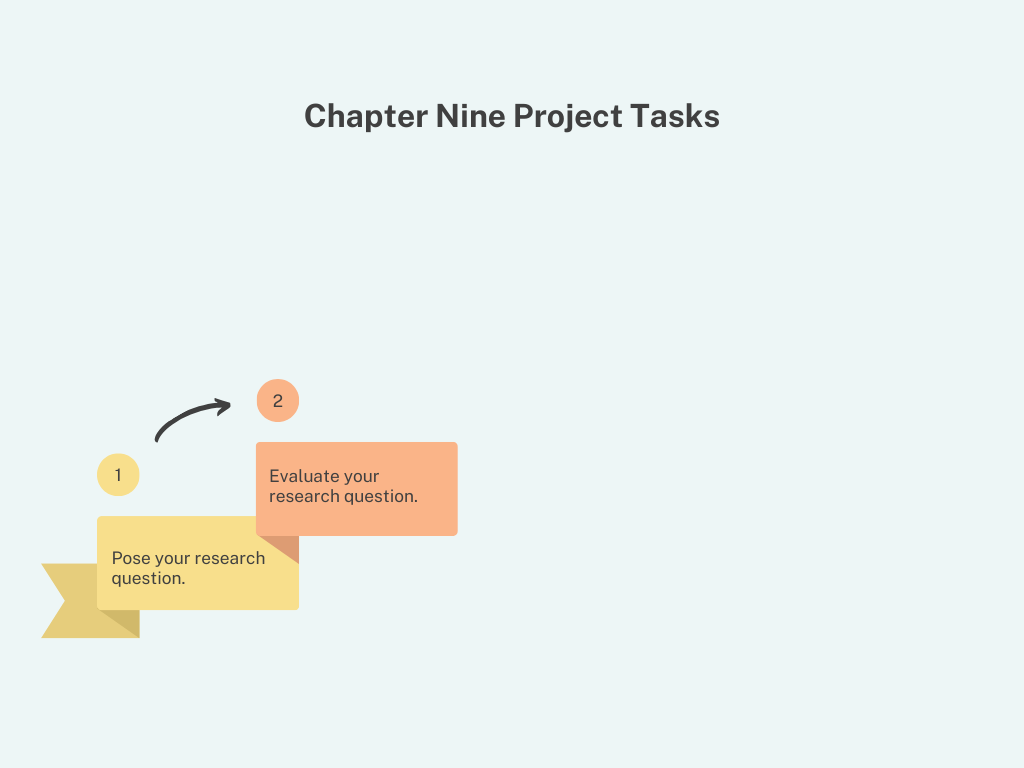Chapter 9 Objectives
Barry Mauer and John Venecek

Objectives
This chapter focuses on the art of crafting a clear, concise research question that will drive your research. Beginning researchers often struggle with the task of framing a research question, but we show how asking critical, open-ended questions can provide an entry point into the scholarly conversation on your topic. As we will discuss, a good research question has a clear purpose because it addresses a scholarly problem. It should relate to the work of other scholars and should be one they find relevant and significant.
Developing a good research question requires asking lots of other questions. Think of the research question as the engine that drives your project. If the engine is too simple, it may not work at all. If it’s too complicated, it may not work efficiently or effectively. The goal is to have your research question take you a long way toward producing new understanding to add to the scholarly discourse.
This chapter will focus on strategies to help you develop, refine, and evaluate a good research question. We’ll begin with Dr. Bruce Janz, professor of Philosophy at UCF, who discusses how he approaches the art of asking good questions with students in his courses. Dr. Janz’s thoughts provide a good starting point that we’ll build on in the next section, Refining Your Research Question” where we’ll watch Jada discuss how she used an invention process that consisted of “built-in” questions, frames, and methodologies that caused her to view James Baldwin’s work in an unexpectedly personal way.
In the final section entitled “Evaluating Your Research Question,” we’ll circle back to Dr. Janz who provides some strategies for evaluating your question to ensure that it’s clear, complex, focused, and that the answer is arguable. The focus is on devising an open-ended and arguable question that adds to the discourse rather than answering a simple question.
Please complete the following tasks as you read through this chapter. Keep track of your work and reflect on how these tasks relate to the ones you have already completed. 
 Learning Objectives
Learning Objectives
Your thesis statement will answer your research question, so having a polished question is essential to the development of your thesis statement. Having both are essential to writing an abstract. Hence, this chapter helps you to
- posit your research question.
- refine and evaluate your research question.

